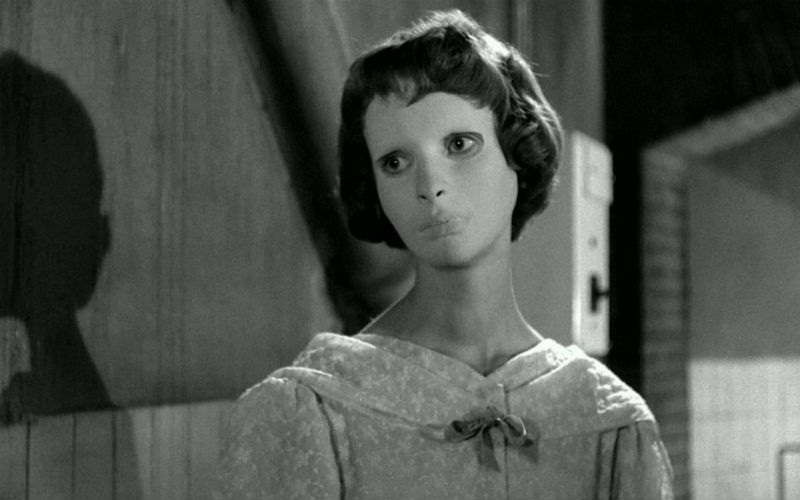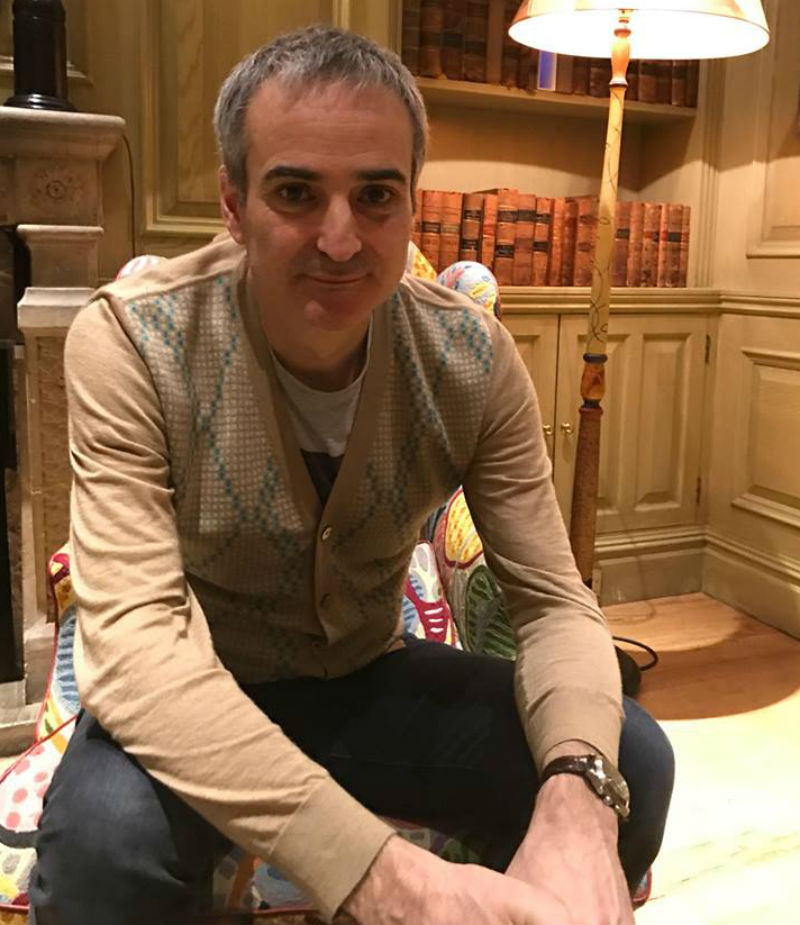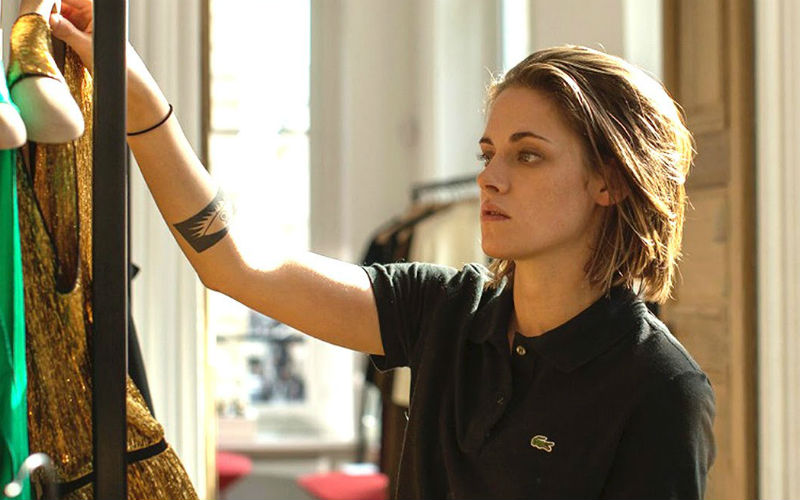




Olivier Assayas is a very prolific filmmaker, with a career spanning nearly four decades and nearly 30 movies under his belt. His latest flick Personal Shopper is a very unusual blend of horror and fashion set in Paris, starring the American model and actress Kristen Steward. This is major change from his previous film, the acclaimed Clouds of Sils Maria (2014): a lesbian drama starring Juliette Binoche and taking place in the Swiss Alps.
His latest movie tells the story of Maureen Cartwright (Stewart), a young American working in Paris as a personal shopper for a celebrity called Keira (Nora von Walstatten). She has the ability to communicate with spirits, just like her recently deceased twin brother. She is now trying to communicate with her recently deceased twin brother, and it’s other ghosts that cross her path.
Victor Fraga from DMovies met up with Olivier in London as the director came to the UK for his film release, and he’s says that Brits have been very positive about his new film. So we decided to ask him a few questions about the unusual connection between horror and fashion, the French horror genre, making an English-language film in France, international co-productions, Brexit and more!
Personal Shopper is out in cinemas on Friday, March 17th – click here for our review of the movie.
…
Victor Fraga – France doesn’t have a consistent tradition of horror, but instead sporadic pieces such as Les Diaboliques (Henri-Georges Clouzot, 1955) and Eyes Without a Face (Georges Franju, 1960). Why do you think that is? Do you think there is some sort of prejudice in the country against the genre?
Olivier Assayas – If you look closely there’s actually a strain, perhaps more of an undercurrent. The French have a different approach to genre. American horror is defined by this Manichaean opposition, where the visible is good and the invisible is evil. The embodiment of evil is always lurking under the surface. That’s not the way the French and, in a certain way, the European tradition works.
What I mean is, the “hidden”, the supernatural is often benevolent and benign to the French, it doesn’t have to be bad and evil. In Personal Shopper I tried to reconnect with this very specific aspect of French cinema. That’s something you see in the movies of Jacques Rivette, which are pretty much ghost stories. He’s been very influential on my work. I wrote for André Techiné when I was very young the screenplay for Rendez-vous [1985], which was also some sort of ghost story. Georges Franju is my biggest reference, he’s a remarkable filmmaker. His work is fascinating, with this strange relation to the silent era. Silent films are also very meaningful to me.

VF – Horror normally mandates a lot of bodily fluids: blood, vomit, saliva, sweat, yet Personal Shopper is relatively “clean” and the scares are subtle. Do you think such fluids would have ruined the fashionable outfits?
OA – I suppose I’m not big on that. You have families within genres, and I think I would connect to Alfred Hitchcock, Dario Argento and John Carpenter. They don’t show the gore.
VF – The Thing (John Carpenter, 1982) was very gory, wasn’t it?
OA – Yes, you are the right. That’s the only one, when he suddenly spits it out. But it’s not there in the other ones, particularly his early movies.
VF – Was it a conscious decision to leave the gore out?
OA – Yes, it was. There is a similar opposition between fear and gore and between eroticism and pornography.
VF – Ghosts on the telephone are no novelty in cinema, there’s for instance, a remarkable sequence on Lost Highway (David Lynch, 1997) of such nature. Yet computer literate entities are a novelty. Where did you get the idea from? Have you received such ambiguous messages yourself?
OA – Your question is interesting [spoiler alert: jump to the next question if don’t want to find out about the twist in Personal Shopper] because, in reality Maureen is not speaking to a ghost, she’s speaking to Ingo. She just thinks it might be an entity. I intended to have very little ambiguity, but a lot of people seem to take that side road. Basically it’s guy who is stalking and observing her.
The question I raise is: how can you be seduced by someone you can’t see and whose gender you don’t even know? That was really what I trying to question. But why does Maureen get entangled in this? Because she’s ultra-sensitive; she’s waiting for a sign. So she suddenly asks: “are you living or are you dead?”, and she breaks down in tears because she thinks she’s going nuts.

VF – Horror and fashion are a very unorthodox mixture – horror is jarring and unsettling, while beauty and splendour are meant to prevail in fashion? Did you purposely set up a very challenging task for yourself, or do you think that the two, in fact, have a lot in common?
OA – I have no prejudice in terms of where horror can happen. The more real the environment, the scarier the movie. I’m sure Dario Argento has done similar stuff. In any case, it was mostly about getting the environment right and giving it some sort of documentary feel. I tried to recreate the fashion background in a way that’s believable.
VF – Could you please explain what you mean by “documentary feel”? I never got the feeling that your film was a documentary.
OA – I don’t mean documentary in terms of syntax; I mean creating a realistic environment, but not real in the Ken Loach sense. I also wanted it to be as weird as it can be.
VF – And what do you mean by “weird”?
OA – The way we live is weird. Someone like Keira [Maureen’s celebrity boss] does exist. She floats on top of things. She has a flat in Paris where she stays for just a few days, and a boyfriend who occasionally flies in from Germany to see her, and she uses her personal shopper Maureen in order to connect with brands. It’s some sort of ghost world, except that it’s real and some people do live like that. Weird in the sense that it’s disconnected from the rest of society.
On the other hand, Maureen is a foreigner, she has no friends and no family, and she doesn’t even speak the language. So what kind of work can she do? She can only do stupid jobs like carrying bags from one place to the other. There’s something very alienating about her, but at least it’s real and you can relate to it.
What’s interesting about the fashion world is the ambiguity: Maureen both loves and hates her job. She’s attracted to it because it deals with something she’s trying to come to terms with: her femininity. Which is similar to the relation we have to the modern world: we are dismayed by materialism, but simultaneously we are craving to be part of it. There’s a metaphor in my movie.

VF – This is not the first time you blend English with other languages in your films, in countries where English is not the mother tongue. Is that because you wanted to work with Kristen? Or is it because you wanted to give your film an internationalist feel? Did that upset the French?
OA – Yes, of course the French were upset. They don’t make my life easy, particularly in terms of financing. You don’t get any subsidies for films like Personal Shopper in France because they are in English language, and therefore considered an international movie. So I have to finance my films in the global market, where I’m considered an indie French filmmaker with little potential. It’s like a tighrope.
I’m interested in transnational culture, I think that the communication between languages and cultures is very exciting, very contemporary. A movie like Personal Shopper makes sense because it’s foreigners in Paris. Also, this approach enabled me to work with multiple actors; not just Kristen Stewart but also Lars Heidinger and Nora von Waldstatten. It opened doors and possibilities, and not just in terms of narrative.
VF – Personal Shopper is an international co-production between France and Germany, yet it’s London that the main character visits. Why is that? Would you consider a co-production with the UK and does the prospect of Brexit affect that?
OA – The problem is that it’s extremely expensive to shoot in London, so we had to get it all done in just one single day. I decided to film in London because I wanted Maureen to have a long text message conversation, but that only makes sense if she’s doing something else at the same time. If Maureen went to Milan instead she wouldn’t have to go through customs and sit on a lounge. A journey to London offered more background action.
Brexit doesn’t change anything for me. You normally have co-production frameworks between countries, and they exist with nations outside the EU. I think that what will change are the subsidies for British films opening in France, and the other way around. Sadly, Brexit means that there will be fewer British films showing in France and fewer French films showing in Britain!











